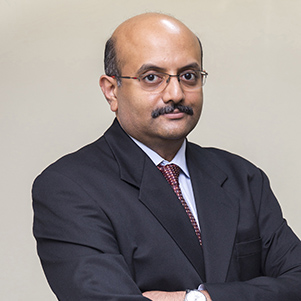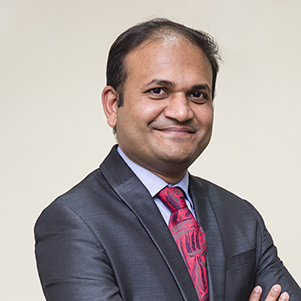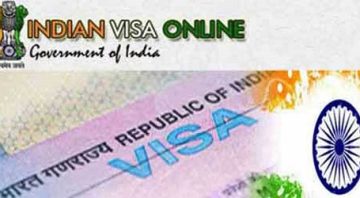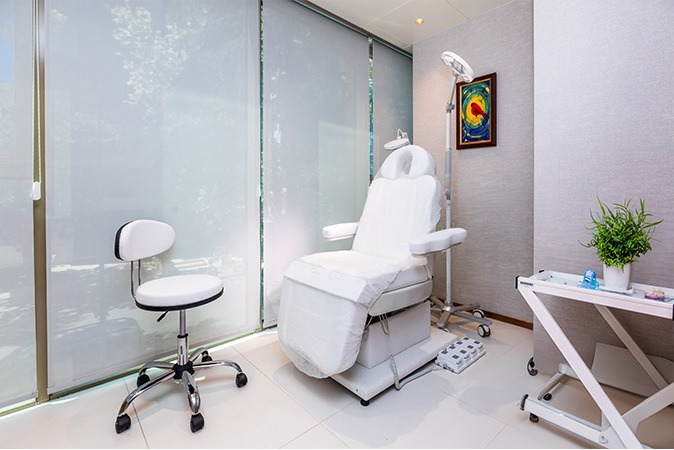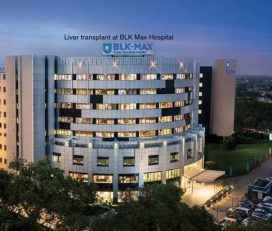In which case, pancreas transplant is needed?
The function of the pancreas is to restore the normal blood glucose levels of the body by releasing insulin directly into the blood. In the case of severely affected diabetic patients or in pancreatic failure patients, the pancreas is not able to produce insulin to manage the blood sugar level. Rarely in some cancerous cases, pancreatic transplantation is done.
How can a surgeon decide whether to go for a pancreas transplant or not?
- Whether the patient is having a history of Tuberculosis, HIV
- The overall physical condition of the patient
- The severity of the pancreas disease
- Mental support patients are getting from their family and friends.
- Your surgeon will evaluate whether pancreas transplant surgery will help extend the patient’s life or not. If the patient who needs a pancreas transplant is already suffering from cancer that has spread throughout his body, the surgeon will decide not to go for the surgery as the patient is already suffering from a life-threatening disease.
Who is a good candidate for pancreas transplant surgery?
- A person who has issues with a diseased pancreas, but should be overall healthy enough for undergoing the complete surgical procedure without any complications.
- Who is a non-smoker and non-alcoholic, as smoking can affect the recovery process and can increase postoperative complications.
- A person who is free from any other systemic diseases like liver disease, diabetes, high blood pressure, or vasculitis.
- And those who can continue the post-surgical medications lifelong without fail and can follow all the instructions mentioned by the doctor.
What are the various types of pancreatic transplant surgeries a doctor can perform?
Mostly there are four types of pancreatic transplant surgeries.
- Pancreatic transplant alone(PTA)
- Simultaneous Pancreas Kidney Transplant(SPK)-due to diabetic nephropathy, the kidney of the recipient gets damaged. In this condition, the donor’s pancreas along with the kidney should be transplanted simultaneously in the recipient’s body.
- Pancreas After Kidney(PAK)
- Kidney After Pancreas(KAP)
What are the types of donors for Pancreas Transplantation?
The pancreas can be collected from a live person as well as from a deceased or a dead person. If it is taken from a dead person, the procedure is called cadaveric pancreas transplantation. The donors can be
- Related live donor- when the pancreas is taken from a first-degree relative such as brother, sister, parents, and children. This is possible because a healthy donor can give a portion of his/her pancreas to their known recipients In that way, you are getting to help others and you can have your organ too.
- In most cases, a close relative, especially an identical twin, is preferred as the tissue type and blood group both are likely to have a good match and a part of their pancreas is almost similar to the other.
- Unrelated living donor- in this case, a pancreas is taken from a person who is not connected to the patient and a stranger to the recipient.
- Deceased patient- here pancreas is collected from a dead person. Here the donors are mostly victims of road accidents, brain tumors, or brain hemorrhages who have been declared as brain dead by the hospital authority but have a healthy pancreas.
What are the tests you should go for before undergoing a pancreas transplant?
Before this cosmetic surgery, your surgeon will evaluate all the following points
- Complete blood count (CBC)
- Lipid profile(cholesterol test)
- General body weight
- Urine test
- MRI scan
- X-ray
- Pap smear tests for women over 40 years of age.
- Mammography for women over 30 years of age.
- Colonoscopy for patients over 50 years of age.
- Echocardiography
- Kidney function test
- Neurophysiological examination
Hence, you should be ready to undergo a lot of tests.
How can you avail a donor for pancreas transplant surgery?
After undergoing a lot of tests mentioned above, your surgeon will determine whether you will be a good candidate for the surgery or not, and you will be placed on the transplant center’s waiting list. Even after getting a place on the list, you might have to follow some pre-operative protocol. Though this protocol might change due to variations in the donor and recipient’s blood and tissue type.
What is the average waiting time for getting a liver for an eligible patient?
- The waiting period is 1-2 years for a Simultaneous Pancreas and Kidney(SPK) transplant patient.
- For Pancreas After Kidney or Kidney After Pancreas, the overall waiting list will be more than two years.
What are the precautions you should take before undergoing pancreas transplant surgery?
- Consult all your queries related to the procedure with your surgeons and clear your doubts.
- Make sure you inform all your past and present medical history to your doctor.
- If you are prone to some allergic reactions or you are taking any herbal supplements, you need to mention that too.
- If you are under any medications especially on blood thinners like aspirin or some NSAIDs like ibuprofen, naproxen you should inform your doc and stop or adjust the dosage of those medications before surgery according to your physician’s advice.
- If you are anemic, you should start having iron supplements before you go for surgery.
- Women on OCP(Oral contraceptive pill) should stop taking pills at least before one month of surgery.
After getting confirmation from the lab reports and medical examination that you are undergoing liver transplantation surgery, your surgeon or medical personnel will guide you and your family about the Dos and Don’ts before surgery.
What are the risks you might face after pancreas transplantation surgery?
- Allergic reactions to the anesthetic solution.
- blood clot.
- Transplant rejection by the recipient’s body
- Sudden pancreas failure even after successful transplantation.
- Bleeding or hemorrhage
- Increased risk of infection.
- A sudden increase in blood sugar level( hyperglycemia)
For how much time do you have to take medications?
After successful pancreas transplantation, you have to be under anti-rejection or immunosuppressive medications for lifelong.
Will there be any side effects of these prolonged medications?
- Weight gain hair loss
- Acne
- Skin infections
- Skin cancer
- Lymphoma
- Sudden weight gain
- Bone thinning
- Hypertension
- Increased blood sugar level.
What procedures need to be done during surgery?
Before the transplantation surgery, a team of surgeons and medical personnel will monitor your oxygen saturation, cardiac output, blood pressure, central venous pressure(CVP) and if everything remains within normal range then only your surgeon will go for further procedure.
- The incision is made at the center portion of the abdomen.
- Donor tissue is placed at the incision area.
- In the case of a living donor, the new portion of the donor’s small intestine and the portion of the pancreas is attached along with the recipient’s small intestine.
- In the case of a deceased donor, the whole pancreas is attached to the urinary bladder of the recipient.
- New vascular connections should be established from the new pancreas to the urinary bladder.
- After surgery, the patient has to stay in the hospital for further evaluation before getting discharged.
How much time should a patient stay in the hospital after the surgery?
This depends on the type of anesthesia the patient has undergone. In pancreas transplant patients, as the procedure has been done under general anesthesia, the patient might have to stay overnight for 21 days. After successful transplantation, your medical personnel will evaluate all the tests along with the pancreas function during this time. You have to stay in the ICU for a few days and after that, they will transfer you to the Transplant recovery unit for further recuperation. Make sure that someone should be there to accompany the patient after getting discharged from the hospital.
Generally after how many days patients can start their regular activities?
Within one month patients can resume their daily lifestyle. That’s why patients are advised to take 5-6 weeks off from their job and take an ample amount of rest. This will help in quick recovery but any kind of strenuous activity or vigorous exercise should not be done without medical supervision.
How much time will the pancreas transplant procedure take?
It will take almost 2-3 hours to perform the complete procedure.
What are the FAQs you should ask your surgeon about after pancreas transplantation surgery?
- What are all the medications you have to take?
- Will there be any follow-up visits?
- When can you resume your work and regular lifestyle?
- When can you start doing exercises?
- How to do the postoperative wound management and when the stitches will be removed?
What are the diet and instructions you need to follow after surgery?
You need to have
- Low fat, low salt diet
- 5 servings of food along with fresh fruits and vegetables
- Stay hydrated all the time. Increase water and fluid intake specifically just after the surgery.
- Take calcium and phosphorus enriched food like dairy products.
- Avoid fruits like grapes as they can interfere with the actions of anti-rejection medications.
- Eat lean meat, fish
- Reduce eating outside as can make yourself prone to infection
- Be regular with your medications.
- Keep your blood pressure, diabetes always in check.
What are the instructions you need to follow a day before surgery?
- Do not take any food or liquid 6 hours before surgery
- Avoid heavy meals for at least one day prior to the surgery.
What are some FAQs you should ask your surgeon about the pancreas transplant procedure?
- What is the success rate of pancreas transplant surgeries done by your surgeon?
- How is it possible for a deceased person’s pancreas to become functional after the surgery?
- Will the new pancreas start acting right after transplantation?
- What will happen if my body rejects the new pancreas?
What to do if your body rejects the new pancreas?
You will be under immunosuppressants after surgery. Even after that, if your body rejects, it will happen within the first 6 months only.
You might experience the following symptoms
- Reduced urine output
- Tiredness
- Fatigue
- Flu-like symptoms, if you are going to face organ rejection. You should contact your surgeon immediately if you are going through these symptoms.
What will happen if you choose a deceased donor’s pancreas over a living one?
A healthy pancreas from a living person that is functioning properly can easily get accepted by your body. As they remain outside the recipient’s body for a lesser amount of time, they can function well and perform better than the pancreas taken from a deceased person.
How to choose doctors if you want to go for a pancreas transplant surgical procedure?
- You can go through the reviews of those who have already been through pancreas transplant procedures in multiple medical forums and if you are worried about some negative review, you can always consult with your doctor about the matter.
- Look for the experience of general surgeons and positive patient stories.
- You can also look for the success rate of pancreas transplantation surgery done by your surgeon.
Who are the best doctors for performing pancreas transplants?
Well-experienced and board-certified general surgeons and endocrinologists can perform the procedure. And make sure to check the accreditation of the hospital from where you are getting your pancreas transplantation surgery done.
Why should you go for pancreas transplant surgery in India?
Along with the high-quality lifestyle here in India, you will get well-experienced and skilled surgeons who are comfortable with the best and latest available technology. You will get personalized care from trained medical personnel. Hence it ensures shorter hospital stays and quicker recovery.
Any botched-up case of pancreas transplant surgery in India?
To date no such cases have been reported as here in India, surgeons are way more skilled and experienced. But to avoid these kinds of cases, you should choose your surgeon carefully.
Do you feel that the cost is way out of your budget? Are you looking for insurance?
In India, the majority of health insurance coverage is for serious ailments. That’s why the chances of getting coverage for the procedure are higher. You can consult with your financial advisor related to the matter and explore the possibilities along with your surgeon. Though nowadays EMI facilities are available in some financial agencies. Even after that, you are feeling it’s difficult for you to avail yourself of the insurance, you can always ask your doctor to write one letter to your insurer describing the importance of this surgery on your health. If your insurance company provides coverage also, it will bear a partial amount of its budget. So make sure you read the details and go for it. Even if your insurance company bears it now, you might have to pay a higher premium for later.
Takeaway- you should always choose a pancreatic transplant surgical procedure if your doctor is suggesting you for doing so and you should go for it whenever you will find a living donor to gain an improved quality of life. Nowadays it has become easy to undergo such a procedure with lesser complications due to improved surgical procedures and immunosuppressive or anti-rejection medication. If you are going through some life-threatening diseases and don’t know what to do in this crisis, please feel free to contact us. We are always there to help you out.









